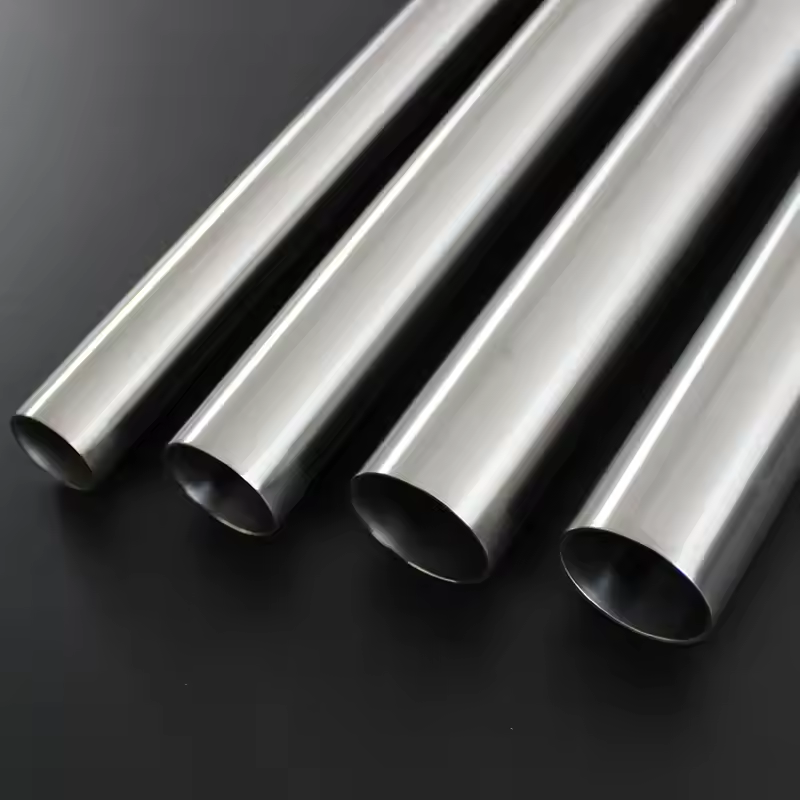Power plants work under high temperatures and pressure conditions, which demand materials that can handle heat, corrosion, and stress for long periods. Stainless Steel 321H Pipes are one of the best choices for such environments because of their excellent strength and stability at elevated temperatures. A reliable Stainless Steel 321H Pipes Supplier provides pipes that perform effectively in critical systems, ensuring safety and efficiency in power generation operations.
Understanding Stainless Steel 321H Pipes
Stainless Steel 321H is a high-carbon version of grade 321, developed for better performance in high-temperature applications. These SS 321h pipes are known for their ability to resist oxidation and creep even when exposed to continuous heat. The presence of titanium in 321H grade helps prevent carbide precipitation, which makes the material more durable during prolonged exposure to high temperatures.
A trusted 321h stainless steel pipe supplier ensures that these pipes are manufactured following strict quality standards to maintain uniform thickness, strength, and corrosion resistance.
Applications of Stainless Steel 321H Pipes in Power Plants
Boiler Systems
Power plants use boilers that operate under very high pressure and temperature. 321h pipe is suitable for boiler tubes because it can withstand thermal stress and oxidation.
Heat Exchangers
In heat exchangers, materials are exposed to both hot gases and fluids. Stainless steel 321h pipes perform well here due to their excellent thermal resistance and corrosion protection, ensuring efficient heat transfer.
Superheaters and Reheaters
Superheaters increase the temperature of steam beyond its saturation point. 321h stainless steel pipe is used in these systems because it maintains its strength even at very high temperatures without deforming or scaling.
Steam Lines and Piping Systems
The durability and flexibility of ss 321h pipes make them ideal for steam piping systems where constant heat and pressure are present. These pipes ensure smooth steam flow without risk of leakage or damage.
Turbine Components
Some parts of turbines and associated equipment are made using stainless steel 321h pipes due to their resistance to high heat and their ability to maintain mechanical strength over time.
Advantages of Using Stainless Steel 321H Pipes in Power Plants
High-Temperature Strength
The main advantage of 321h stainless steel pipe is its excellent performance in high-temperature environments. The higher carbon content improves strength, making it suitable for prolonged heat exposure.
Resistance to Corrosion and Oxidation
Power plants often deal with hot steam and corrosive gases. Stainless steel 321h pipes offer strong resistance to oxidation and scaling, even when temperatures go beyond 800°C.
Long Service Life
The combination of strength and corrosion resistance ensures that ss 321h pipes last longer, reducing the need for frequent replacements and maintenance.
Good Weldability and Fabrication
Despite their strength, 321h pipe can be easily welded and formed into various shapes. This helps in building complex piping systems used in modern power plants.
Cost-Effective Performance
Although the initial investment might be higher, stainless steel 321h pipes prove economical in the long run because of their durability and reduced downtime for repairs.
Stability in Extreme Conditions
A well-tested Stainless Steel 321H Pipes Supplier delivers pipes that maintain their performance even under continuous heating and cooling cycles. This stability ensures safety and reliability in power plant operations.
Conclusion
In power generation industries, efficiency and safety depend greatly on the quality of materials used. Stainless steel 321h pipes are among the most dependable materials for systems exposed to high temperatures and corrosive conditions. They offer strength, durability, and thermal resistance, which are essential for the smooth functioning of power plants. Choosing the right 321h stainless steel pipe supplier ensures that each pipe meets strict quality requirements, providing long-lasting and efficient performance in critical applications.
